Armando Iannucci on avoiding politics and 'celebrating Britain' with his take on 'David Copperfield'
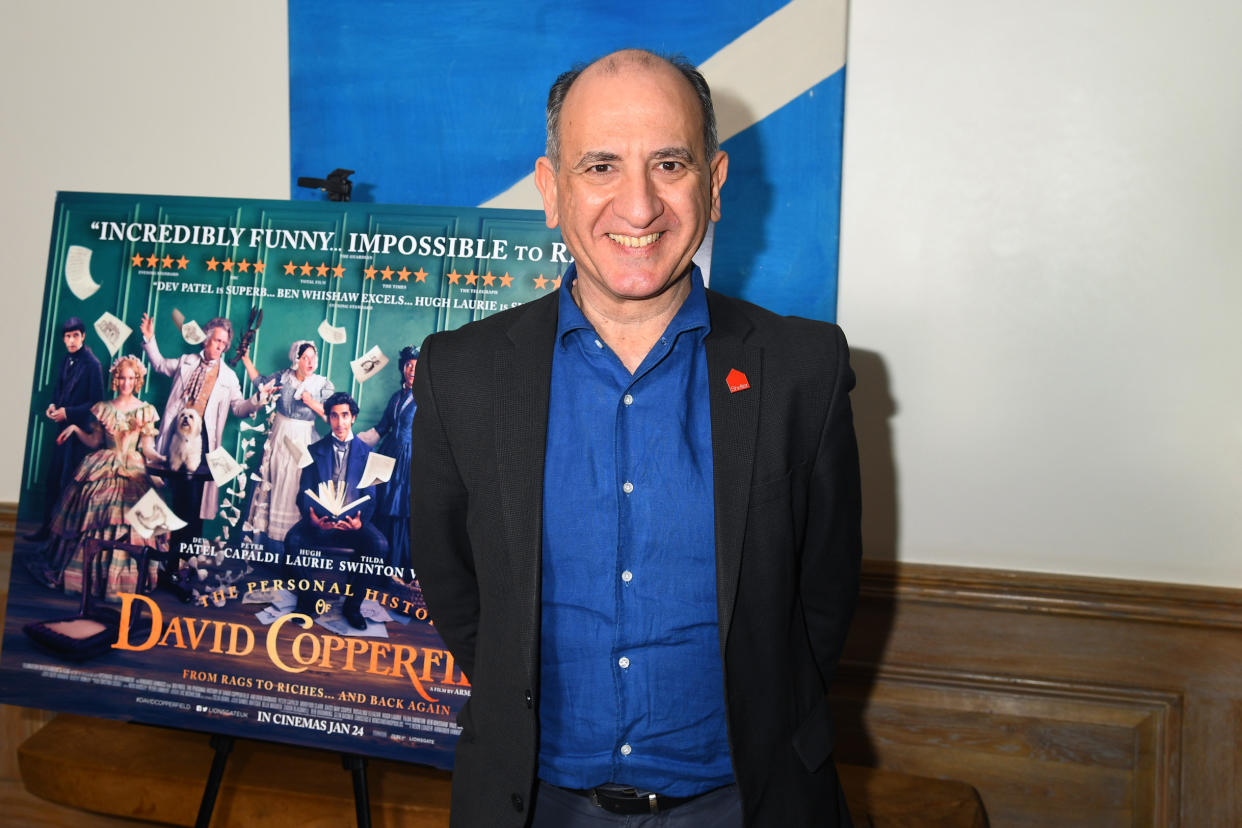
Armando Iannucci doesn’t want to go back to The Thick of It any time soon — in fact he “couldn’t think of anything more depressing” than a return to the corridors of power.
The satire maestro has in fact taken a very different slant with his colourful, vibrant adaptation of Charles Dickens novel David Copperfield. He’s going positive.
“I think it’s a hopeful book and a celebration of life in all of its variety, good and bad,” Iannucci tells Yahoo Movies UK.
He adds: “I just wanted to do something that would just be fun for people of all ages to see. Hopefully they can get something out of it as well.
Read more: Dev Patel shines in David Copperfield trailer
“It is an emotional journey and there are the issues of homelessness, poverty, death and all of that. But there’s also something hopeful and about community and connection. It’s that sense of a group of people who all affect one another’s lives, and celebrating that.”
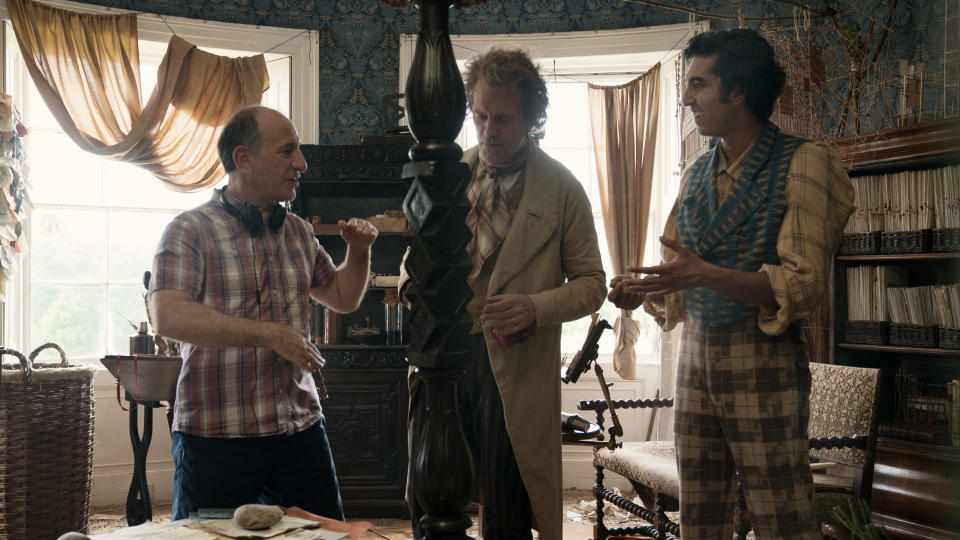
It would be wrong to describe Iannucci’s The Personal History of David Copperfield as revisionist, but the casting of British-Indian actor Dev Patel is a colourblind personnel move that the director just couldn’t let go of, saying he “didn’t have a plan B”.
Iannucci acknowledges the cultural influence of The Thick of It, but says he wasn’t interested in delivering “a take on Brexit or Trump” with his next film.
Read more: Iannucci says there are echoes of Stalin in Trump
He says: “I wanted to do something that felt positive and was about community.
“Maybe in the last three years of ‘we don’t want this’ and ‘we want to be away from that’ and ‘we don’t want these people’ and people not wanting to talk to each other, I just unconsciously thought that it felt right to do something that was about celebrating actually what this country is.
“I like being British and I feel lucky to have been born in the United Kingdom.”
Read the full interview with Armando Iannucci about the legacy of The Thick of It, the beloved Dickens character he had to cut from the movie and his views on the state of modern comedy.
Yahoo Movies UK: This is perhaps not an obvious film for you to do in the wake of your back catalogue?
Armando Iannucci: People say that, and I’m aware of why people think that because of The Thick of It and the last one was The Death of Stalin, which was grim. But I’ve always said that if you look at Alan Partridge, that’s kind of silly and human.
There’s no swearing and nobody gets killed. And also, I’ve just always felt inspired by Charles Dickens, right from a young age. I’ve always just relished that kind of ambition he had to entertain and be funny and yet at the same time take on big issues, but never lose sight of the humanity underneath it and that kind of warmth.
Read more: Death of Stalin cast on laughing at a tyrant
I think also it’s maybe just a reaction to the toxic conversation going on. I just wanted to do something that would just be fun for people of all ages to see. Hopefully they can get something out of it as well. It is an emotional journey and there are the issues of homelessness, poverty, death and all of that. But there’s also something hopeful and about community and connection. It’s that sense of a group of people who all affect one another’s lives, and celebrating that.
In British comedy films, especially, we’re seeing a lot of fighting back against that toxicity you mentioned: with Paddington and the new Shaun the Sheep movie even, it feels like what we need is just something really warm and joyful?
The great power of Dickens’ writing is that he wrote it as entertainment. He wrote it on a weekly and monthly basis, always building in the cliffhangers, and he celebrated that. But at the same time, he never shied away from tackling big subjects.
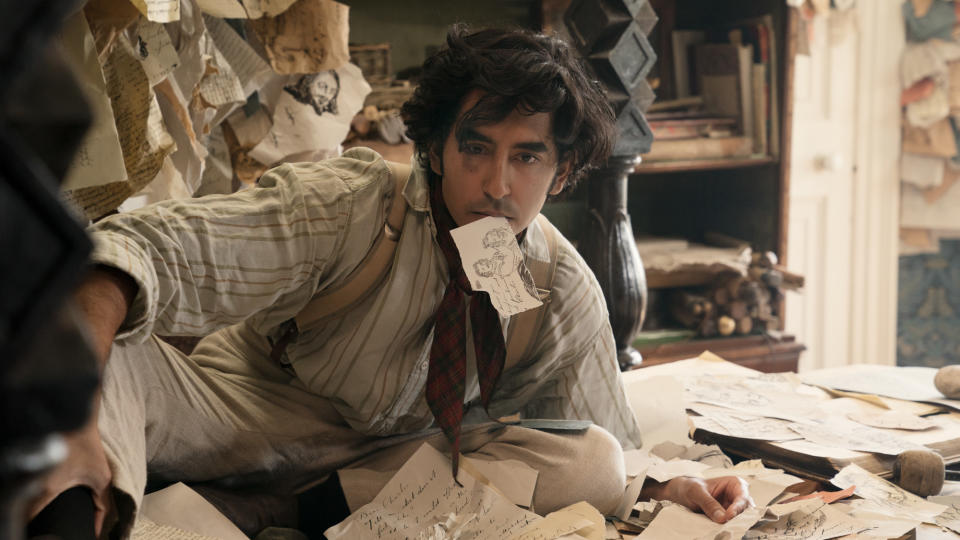
When he was writing, the British Empire was at its height and therefore the establishment felt that everything was fine. And yet, here was this popular writer going: “Well, it’s not fine. This is how you treat children. This is how the law is an ass.” There was an anger there, which he channeled into creativity.
I wanted to make something that was for all the family but, at the same time, hopefully it might cause a family conversation afterwards.
When you go to see a Dickens adaptation, the word “Dickensian” summons a feeling — and your film is not that.
I’ve sort of been saying to people not to say “from the maker of Death of Stalin” or don’t even say “from the Charles Dickens novel”, because I don’t want people to feel that they have to have any kind of preconception. It’s not a study aid. It’s a film and it has got a beginning, middle and end. You don’t need to know anything.
I said similarly to the cast and to the crew that we should make it like we’ve never seen a costume drama before so therefore there are no established rules as to how you are meant to make this.
It’s quite a weighty book, with a lot of story threads. How did you and Simon Blackwell go about condensing that into what is quite a snappy film?
That was the toughest bit. It was all about trying not to be precious about the story, but always being keen to capture the spirit of it. The things I remember from the book are the bits that never appear in adaptations, like when David is drunk and London is described as just swirling around. He’s trying to get up the stairs and it’s like that scene in The Wolf of Wall Street when they’re just crawling around. That was great. And the stuff when he falls in love with Dora and he sees her name everywhere, that’s all in the book. It’s so cinematic and yet it’s not replicated. I wanted to capture that comic playfulness about the book.
Read more: Julie Andrews jokes she was too stoned for Wolf of Wall Street
And it’s a very experimental book too. It’s very modern. It’s all about perception and memory and status anxiety and mental illness and social issues. It’s a very, very modern book and I wanted to keep that. Once we had established that, then it was quite easy to say “okay, this whole story just has to go”.
I know everyone loves the Barkis thing. But what is the Barkis story? He just says “Barkis is willin’” and then he dies. That can go. I’m not doing that again. If you want that, look at some of the older adaptations. I wanted to keep the freshness of it, which made me love the book in the first place.
A lot of that freshness and energy comes from the incredible cast you’ve assembled. Some of them are people you’ve worked with before, and some aren’t. How did you go about finding the right people?

They’re amazing. I’d always said to Peter [Capaldi]: “If I make David Copperfield, would you be Mr Micawber?” and he said yes. But the key thing was that I started with David and I could only think of Dev [Patel] as David. I didn’t have a plan B.
Once you see it, it just makes complete sense.
He said “really?” and I said “yes, because you’ve got to be funny and awkward and gawky and yet grow up and be strong and challenging”. I’d seen him through all that, from Skins onwards and then in Lion he was very strong and charismatic. I just thought: “I hope he says yes, because I really don’t have a number two”.
And then, I wanted to cast it with a variety of types of actor. You’ve got Daisy May Cooper and Paul Whitehouse, who people know from television. Tilda [Swinton], I always thought was naturally funny, but I wanted her to be in and out-and-out comedy. Hugh [Laurie], I’d worked with on Veep. I just said to Sarah Crowe, the casting director, to just bring me everyone you can think of for every role, irrespective of ethnicity. I just wanted to get the best person for that role, the person who feels most suited for that part.
You sort of alluded to this earlier, but I love that this still feels like a movie you have made.
That’s good. In America, some people were like “but there’s no swearing!” and I could’ve done that and made a bleak Charles Dickens. But I don’t think he is bleak, and I don’t think David Copperfield is a bleak book. I think it’s a hopeful book and a celebration of life in all of its variety, good and bad.
Were there any challenges for you in being family friendly after years of doing more adult material?
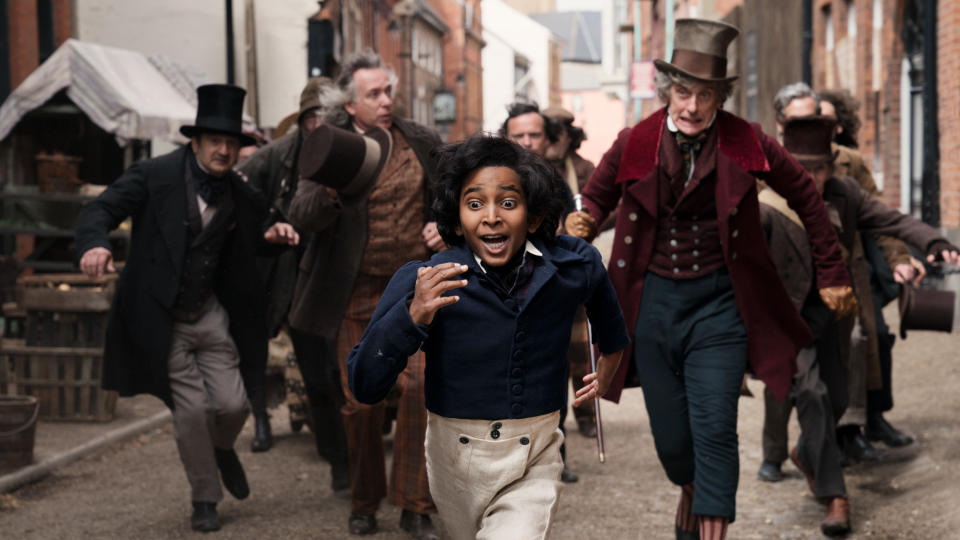
It was no challenge for me. I don’t have to deal with that because it’s not how I feel about myself. Initially, when [production company] FilmNation approached and said “we’ll fund your next movie, what is it?” and I said that it was David Copperfield, there was a kind of: “Why do you want to do that?” But then I explained and they said they’d make it.
I think the core of it is what you said, which is that it’s modern. So it feels like a fit as soon as you see it.
What we said to the cast is that it’s in 1840, but for your character that’s the present day. So it shouldn’t feel dusty and muddy and ancient, it should feel fresh and colourful. It’s the Industrial Revolution, so London should feel like Manhattan in the 1920s. It’s exciting and it’s taking off, but if you get lost in it, it’s frightening and dark.
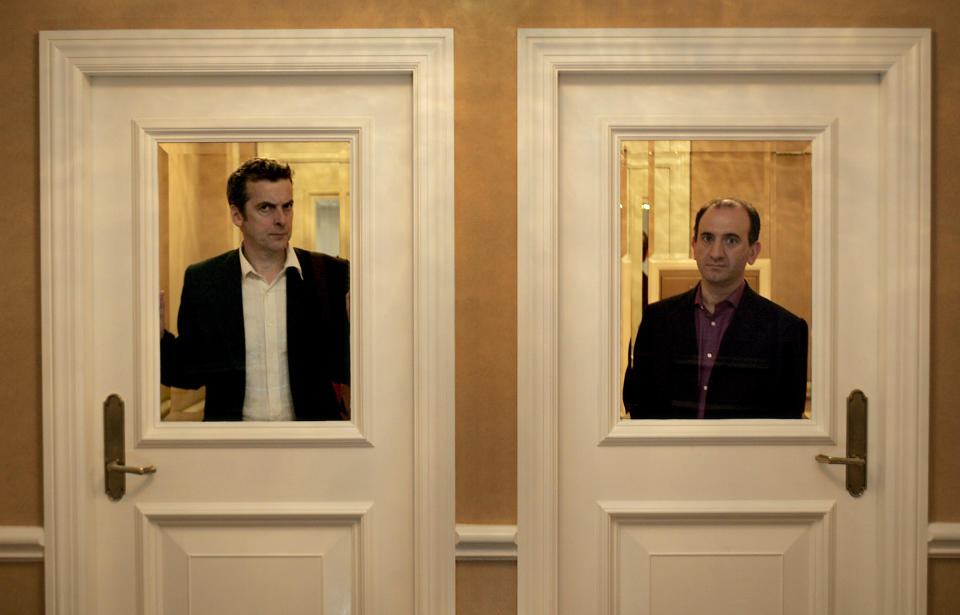
There’s this thing that when people put on a bonnet, something happens to their performance. Suddenly, they go up a register and they talk like [posh voice] this, sir. But I was saying they should just talk like people talk.
The modernity of it really comes through. There are satirical elements in this, but was there an element for you of being a bit tired of doing the satire thing, particularly given the landscape?
No, I just felt that consciously I’m not interested in doing “a take” on Brexit or Trump or something like that. Eventually, I’ll probably do something about just our own mental state as a result of it. I just felt, I think subconsciously or unconsciously, I wanted to do something that felt positive and was about community.
Read more: Mark Ruffalo attacks Boris Johnson’s Hulk metaphor
Maybe in the last three years of “we don’t want this” and “we want to be away from that” and “we don’t want these people” and people not wanting to talk to each other, I just unconsciously thought that it felt right to do something that was about celebrating actually what this country is. I like being British and I feel lucky to have been born in the United Kingdom.
Any time anything happens, people are baying for you to go back to The Thick of It.
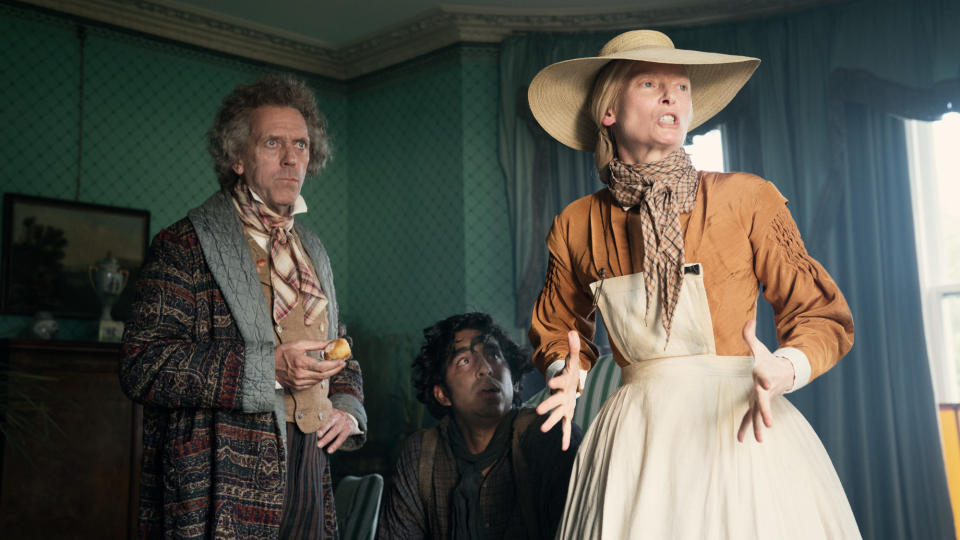
I know! I couldn’t think of anything more depressing. What would the joke be? What the joke be other than what is actually happening? There is no punchline.
How do you feel when you see that The Thick of It is part of our lexicon of how we talk about politics now?
Part of me is kind of happy that it’s still remembered and part of me is concerned that people in politics might be seeing it as some kind of training manual. I saw a thing the other day and Boris Johnson was walking down with a coffee cup and his aide grabbed it and said “no, disposable cup”.
Are we still in that realm of worrying about what image it projects? I just want to know what you’re doing about Brexit. I’m not interested in what coffee you’re drinking or which receptacle it’s in today.
It’s difficult to imagine transposing something like The Thick of It into today’s politics and it still being funny.
I know, and that’s the problem people have with Trump as well. It’s like these people themselves are the entertainment, so you don’t need an entertainer to portray them. But comedians like John Oliver have actually become the journalists and they examine the facts and present them in a funny way.
I wanted to ask you about comedy generally, as you’ve made a comedy film here which is very timely. Todd Phillips, who made Joker, said recently that you can’t be funny any more because of woke culture. That attitude is quite prevalent in a certain circle.
It’s a strange thing, isn’t it? My reaction is always to ask what’s wrong with being offended. If we don’t test our beliefs, we don’t know how strong they are. If you really had, say, a specific religious belief and there was a joke about it, you should feel able to kind of withstand that joke rather than crumble. And therefore, I think it’s good that we keep testing boundaries and keep challenging.
Read more: Brittany Runs a Marathon director on Todd Phillips comments
What’s happening now is not just a comedy thing, but just a fear of any kind of argument. People don’t want arguments and they don’t want discussions with people who have different views.

They would rather just block them or unfollow them or insult them or do that thing of saying: “Clearly, from what you’re saying, you’re wrong and an idiot so I’m not even going to speak to you, you f***ing idiot.”
Do you think that makes it harder to make comedy, or does it just mean you have to go in a different way?
I think you have to go in a different way. But maybe, I think Todd Phillips was also saying that if you’re writing while being conscious of the fact that someone might complain about this or about that, your brain will just explode.
I mentioned Paddington and Shaun the Sheep earlier on. It is just a different kind of comedy.
And also, they’re great films. Paddington 2 was marvellous and Aardman, generally, makes great films. Paddington got slightly overlooked, I thought, though obviously it was a success commercially.
It was banned in Russia, when Death of Stalin was banned. I think it was because it was clashing with a Russian animation or comedy that was coming out. It wasn’t banned, but they pulled it and delayed it by a couple of months.
That’s a quiz question! What links The Death of Stalin and Paddington 2?
Yes, the Russian bear!
One of the things I loved about Copperfield was the infectious energy. That first scene of childbirth contains a lot of slapstick running.
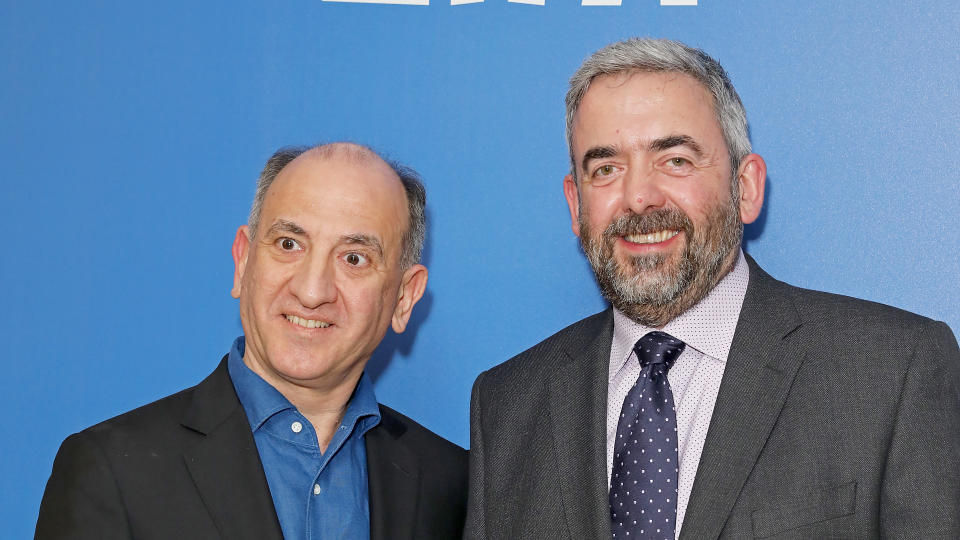
I see it almost as the equivalent of a troupe of players who come on and just go for it. Then, after two hours, they come off and just go for a drink.
How does the process work with you and Simon writing it?
Simon went and did something that wasn’t even a first draft, but was sort of a “what if?” version that consisted entirely of dialogue from the book. It was great to read, but it didn’t make a film because it was very episodic and characters suddenly disappeared for 45 minutes.
Then the question was: “Okay, what is it about the book we like?” It’s not the story really. It’s the energy, the language, the playfulness, the experimentalism, the modernity, the writing. So let’s preserve that and say to the story: “Very good, but I’m afraid we’re just going to have to take liberties now.”
Read more: Lifting the lid on the true story behind Official Secrets
So maybe take some scenes that belong to a minor character and give them to Micawber, so that all of the characters turn up just as you’ve forgotten about them. Once we did that, it all kind of came together and it was just about preserving the balance of the variety of it, but at the same time creating a sense that you’re always moving forward and that this is leading to something. The characters that David initially meets all then start converging around him in a series of dilemmas and crises and so on.
In the Loop is now a decade old and there have been a few drama films based on that era in Official Secrets and The Report. It’s interesting to see all of that stuff coming back to relevance. You mentioned maybe doing something about the current landscape. Would it be similar to In the Loop?
I have no idea. The theme then suggests the format. I need to wait until I’ve formulated what the theme is and therefore what the story is, and then that will suggest how it should be dealt with.
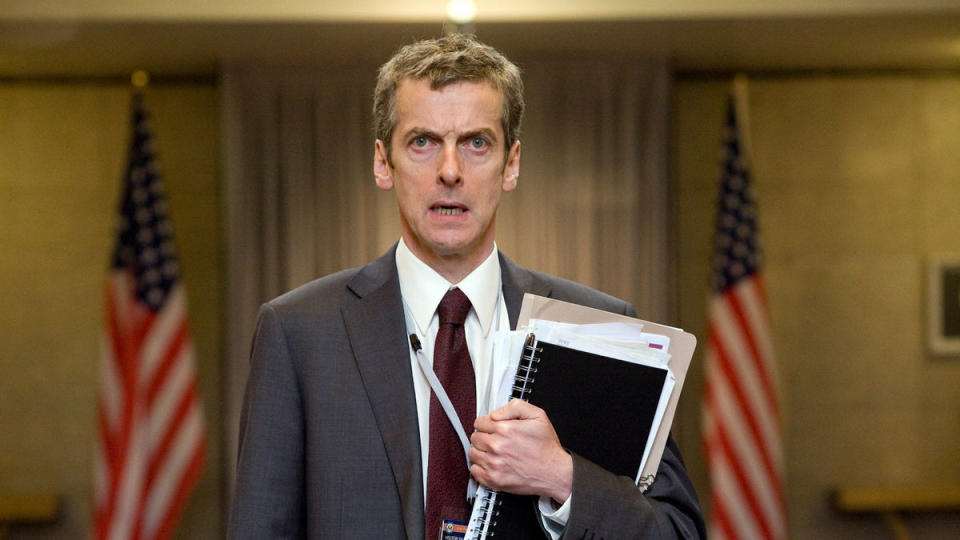
It’s interesting. A lot of In the Loop is true. We didn’t say it’s true because it’s all based in a fictional world. But we went to the Pentagon and the CIA and we got the stories and invented this fictionalised version of it, so maybe that’s why it was easier for us to bring that out at the time.
Now, we’re starting to see the real story and it does kind of unfortunately match up with some of the scenes. It’s the same with The Death of Stalin. People say it didn’t happen and you go: “Yes, it did I’m afraid. That bit there? It happened, unfortunately.”
If you were to go back again, would Malcolm Tucker still be kicking around or was his fall from grace quite definitive?
Yes, I think so. I think now he might have just booked himself into a spa and just thought: “I can’t. This is intolerable.”.
While I’ve got you, what can you tell me about your new HBO show Avenue 5?
Hugh Laurie is the captain of a ship that’s involved in space tourism, like a cruise liner, with 5,000 passengers going to Saturn and back. That’s as far as the sci-fi goes. It’s really about people having to live with one another, who are in a special set of circumstances and are away from home and how they start afresh really.
Read more: First trailer unveiled for Avenue 5
It’s also been 25 years since The Day Today, which you made with Chris Morris.
Jeez! Also, 2020 is the 150th anniversary of the death of Charles Dickens. We hadn’t really planned that.
That worked out nicely! Chris has a new film out as we speak [The Day Shall Come]. Would you be keen to work with him again?
Yes, his film is great. I’ve seen it. We had an anniversary dinner for The Day Today.
Chris did a couple of episodes of Veep as director. He has such a way of working that actually does take up years, so it’s a big commitment. We should do a podcast or something that’s live so we don’t have to go in an edit.
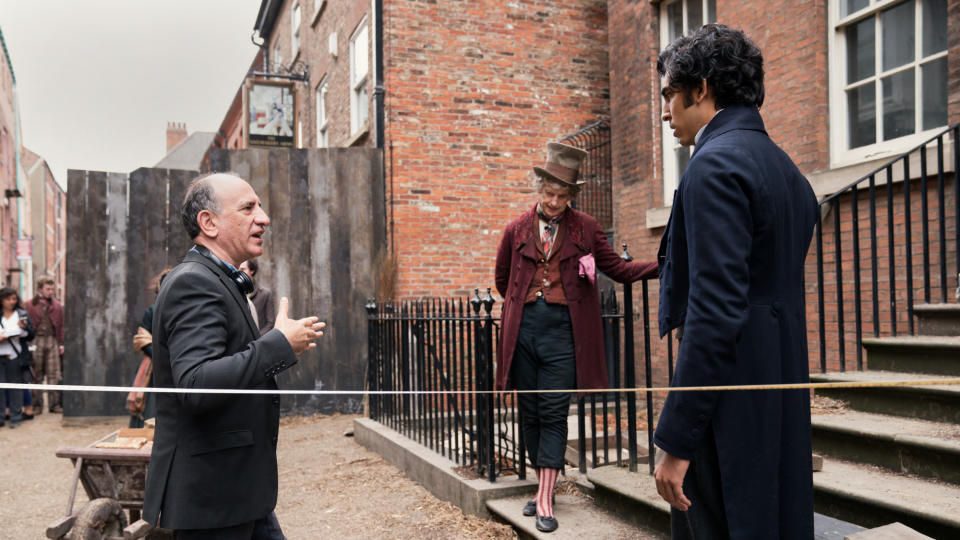
You mentioned John Oliver earlier and I’m keen to get your take on him as part of a wave of very modern satirists. We have The Mash Report here with Nish Kumar.
They’re intelligent and they read, with a journalistic approach. The joke is not how orange Trump’s face is, but actually what he said here, what this person then did, how they then denied that and how he has gotten away with it because these people haven’t asked these questions.
But you need resources for that. You need researchers and lawyers, that’s the key thing. You work it rather like you would work a newsroom in terms of the story. And then you need your team of writers to make that an entertaining story without twisting any element of it.
But it’s interesting. Facts seem so unreal that actually fiction now has to adopt and absorb some kind of reality.
We’ve spoken about Avenue 5, but what else have you got in the pipeline?
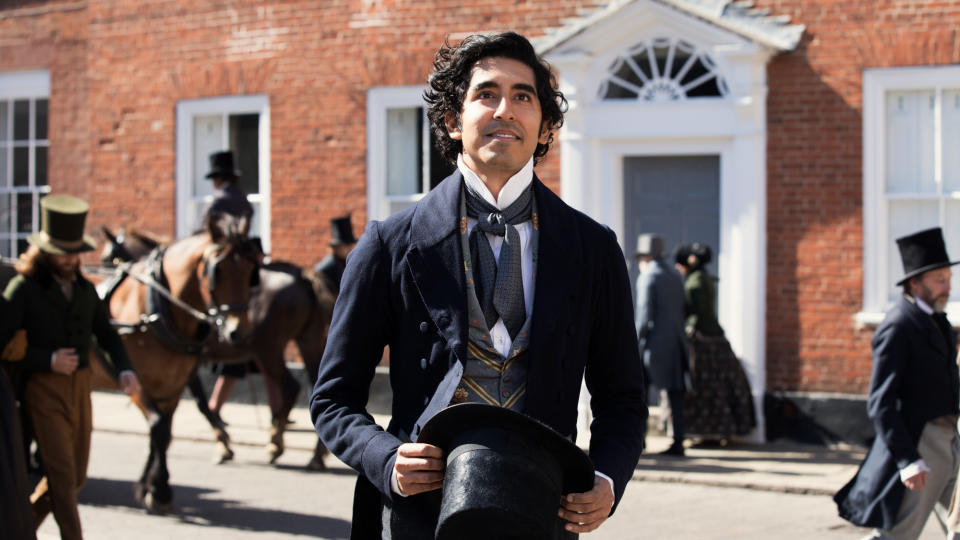
I’ve got a couple of film scripts that are ready to go. But I wanted to concentrate on Avenue 5 a little bit and also just get Copperfield out, because it takes up time releasing a film. With television, it’s just once. It goes out and that’s it. But with a film, it’s this organic thing. Depending on how well it goes, it determines how busy you then are carrying on with it.
So I feel like I need to get David Copperfield out there and let it sail, then instinctively I start to think of the two different scripts and which feels the most natural thing to do next.
Is there a morsel of those scripts you could divulge?
One is about artificial intelligence and the other is a thriller.
It’s interesting. You came from these grounded in fact political things to a sci-fi TV show and now AI?
Well, we still research. For Avenue 5, we went out to SpaceX and Virgin Galactic.
I thought you were going to say you went to space!
Yeah, I went to space and I didn’t like it. There was no audience.
The Personal History of David Copperfield is in UK cinemas from 24 January.

 Yahoo Movies
Yahoo Movies 
